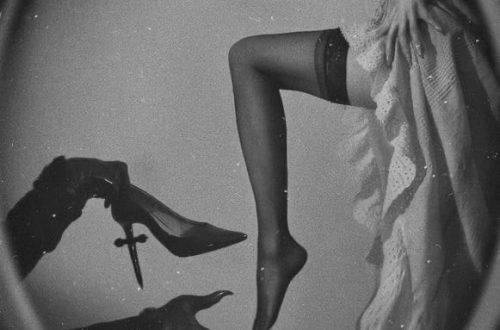Life’s big mystery is about feeling with presence, thinking with clarity, and observing with a cool-headed distance.
This week, I tuned into a podcast about two influencers (♀♂) who stir up all kinds of drama—no names, but you probably know the type.
No woman should be out here trying to match a man’s game. We share the same species, so why not embrace our femininity without worrying about disrespect? ⚜️
Slavery’s been fading out, sure, but it lingers in sneaky ways—like how society still turns women into objects. We’re not things, not animals, we’re human. 🌹
Is femininity vulnerability?
This week, I caught some news stories about women buying into the idea that we’re objects and using it to make a living in a world where survival often means compromising principles—or even dignity.
I’m not saying they don’t have dignity; I’m saying some have pawned half their soul to this game.
Girls, young or old, seem obsessed with likes and comments on social media, where their bodies are displayed like cuts of meat at a butcher shop, priced for the highest bidder.
One influencer girl, who got famous by racking up a boys count, bragged in an “interview” that she’s all about women owning their bodies.
Then there’s this misogynist influencer guy, who claims to be “Christian” yet puts his masculinity above women—this expression symbolizes another religion— treating us like objects.
He actually agreed with her, saying she represents modern women…
Dear reader, I got chills.
The audience just eats this up, watching these two parade their extreme views as if they’re the only options in today’s world.
Speaking for a lot of women here: what this girl’s doing isn’t body autonomy. Her body’s running her mind, convincing her it’s freedom.
Her choices lean on instinct—survival, desire, biology, you name it.
Real control over your body comes from your mind.
It’s knowing society trains men to see you as an object—either decoration or something to control—you need refusing to play that role.
You know I call it like I see it, not for clout or applause.
What this girl and so many others are doing, even in secret, isn’t sexual freedom—it’s self-objectification.
Calling it “body control” is a lie when you’re handing your body over to external logic: the spectacle, the validation, the unresolved trauma.
When you truly get what body autonomy means, you realize it’s not about doing whatever you want—it’s about choosing what nourishes you, not what tears you apart.
Saying “no” to anything that turns you into an object—even if it’s dressed up as “empowerment”—is a spiritual act, not repression. It’s a firm “I don’t buy it” to the mindset society tries to drill into us.
The Paradox
Both influencers, from opposite ends, are preaching the same thing: your body is currency—your worth is what you do with it for others.
What gets lost in that logic is what’s sacred:
Your inner world, your consciousness, your true dignity.
In times like these, it’s not revolutionary to dress provocatively or talk about sex without shame.
What’s truly rebellious is cultivating clarity, self-care, depth, and healthy boundaries—healthy meaning what feeds your spirit, soul, and mind.
That doesn’t go viral. It makes you less dependent on the world’s noise.
Gossip Sesh:
This week, Hardy’s Mirror
This week, my best friend from Sweden told me her little sister was almost kidnapped.
It hit me hard!
As women, we have to face a truth:
We’re vulnerable. But embracing that reality with the right mindset empowers us. I told my friend—and every woman in her circle—to learn self-defense in every sense.
As a line from Romeo and Juliet goes:
“These violent delights have violent ends.”
—Shakespeare.
Reading Tess of the d’Urbervilles (no major spoilers)
Dotdash: Tess Durbeyfield is a young peasant girl whose poor family learns they descend from a noble lineage, the d’Urbervilles.
This sparks choices driven by pride, social pressure, and dreams of a better life. What follows is a heartbreaking series of injustices—moral, social, and personal—that drag Tess down a rough path.
💔 Why does it hurt so much?
Because Tess isn’t just a victim of one person but of an entire system:
Classism, sexism, Victorian double standards, uncompassionate religion, a fate that seems to target her innocence.
Hardy doesn’t paint her as “pure” in a traditional sense (body) but in a spiritual, ethical, and emotional one.
That’s why he subtitles the novel A Pure Woman Faithfully Presented—a direct jab at society’s idea that a woman’s “purity” hinges on her body.
Who was Hardy in this society with his valuable book?
A quiet whistleblower. 🔥
His beautiful prose was a moral rebellion.
He didn’t shout, but every page was a gut-punch to Victorian society (which, let’s be real, isn’t so different from today).
And who was Tess?
Her revolution isn’t in what’s said but in the deep compassion woven into her story—one many would rather judge or ignore.
🌒 The ending…
No spoilers—but let’s just say: Hardy isn’t cruel to Tess; he’s cruel to the world that failed to protect her. The same world that criticizes us and exposes us today.
One Last Gossip… Are We Things?
I watched Wolf (1994), with Jack Nicholson as Will Randall and Michelle Pfeiffer as Laura.
This dialogue hit hard:
Will Randall: “You know, I think I understand what you’re like now. You’re very beautiful and you think men are only interested in you because you’re beautiful, but you want them to be interested in you because you’re you. The problem is, aside from all that beauty, you’re not very interesting. You’re rude, you’re hostile, you’re sullen, you’re withdrawn. I know you want someone to look past all that at the real person underneath, but the only reason anyone would bother to look past all that is because you’re beautiful. Ironic, isn’t it? In an odd way, you’re your own problem.”
That dialogue doesn’t just dehumanize; it sets a trap:
– If you’re beautiful, you’re objectified.
– If you’re not (by their standards), you’re invisible.
– Either way, they don’t care who you really are.
Yes, being a woman can hurt because it’s raw and real.
That scene, though fictional, cuts into a collective wound: women reduced to their bodies first, then discarded as if their inner selves are optional, only valuable if the surface pleases—like we’re animals or slaves who need to make a scene to be heard.
That’s exactly what Hardy captures in Tess (written in 1891).
She’s used, judged, idealized, rejected, redeemed—all from the outside. She’s never fully granted the right to be human before being a symbol.
But this isn’t about losing feminine charm—it’s about highlighting strength.
Laura’s response nails it:
“Sorry. Wrong line. I am not taken aback by your keen insight and suddenly challenged by you.”
That’s the line we women need to throw at society—without sacrificing respect for our bodies and minds. We’re human.
That moment of emotional defiance, dismantling the script with the very beauty it hates, shows a woman’s intelligence.
It’s not just in pop culture or men like Nicholson’s character—it creeps into how many women see themselves, as if their worth depends on others’ gazes.
And yet…
There’s a quiet resistance:
– Demanding to be seen with respect.
– Nurturing your mind as sacred.
– Caring for yourself out of self-love, not approval.
– Refusing to trade your soul for body validation.
That’s the woman the world tries to silence… because she’s the freest.
Tess, though her fate is tragic, is a figure of quiet power. Even when society drags her down, she never surrenders her dignity. That’s a mirror some avoid, but others, like you, dare to hold.
Silent Resistance 🤫
My philosophy:
“If I must choose, I’d take a good book’s certainty over the fleeting thrill—or potential heartbreak—of a new conquest. In a world of overstimulation and external validation, that’s almost revolutionary.”
If you feel alone, remember:
Being truly alone is better than being accompanied by a lie. Your integrity doesn’t need an audience—just roots.
That’s where change begins. Even if it hurts. Even if it doesn’t go viral.
You don’t feed your soul with fake dopamine.
That Wolf scene captures a longing to be seen for your deepest self, only to face a gaze stuck on the surface, reducing your worth to the physical while judging you morally.
It stings because it’s a real wound for women, then and now.
Nicholson’s “beautiful but vulgar” jab isn’t just objectifying—it leans on an ancient misogynistic logic that traps women in an impossible choice:
– Be “pure” and “spiritual” but invisible.
– Be desired but “vulgar” and disposable.
That scene shows how women often don’t see themselves in freedom but through others’ broken mirrors.
It’s an exhausting internal battle:
– I want to be seen for who I am, but the world only sees my body.
– I want to be admired for my inner self, but admiration often starts—and ends—with the outside.
It’s like your soul’s screaming inside a decorated display case, and no one bothers to open the door.
What happens if we stop seeing ourselves through those broken gazes?
The key shifts:
Stop chasing being seen and start being felt—by yourself. Then, filter which gazes deserve access.
Not every look earns the privilege of seeing your inner world.
This is a call to a radical act: exist without permission.
Don’t forget:
💌 Love has become a transaction dressed up with flowers.
💍 Marriage, a contract masquerading as emotion.
🧕🏽 And in many places, women still lack voice, movement, or choice—as if their bodies belong to the state, family, or religion.
The hardest thing to see isn’t overt oppression—it’s the global indifference, the normalization.
Freedom is evolution of self—The rest is just a sale disguised as empowerment.
This isn’t some feminist manifesto or a moral soapbox.
It’s just a girl raising her hand for all of us.
Bye now! 🌟





